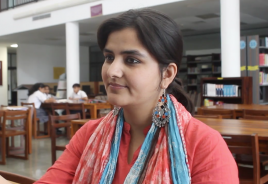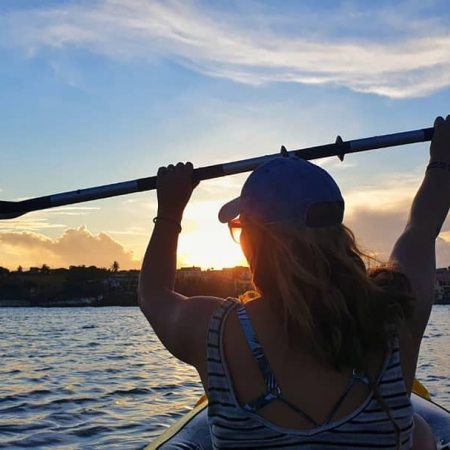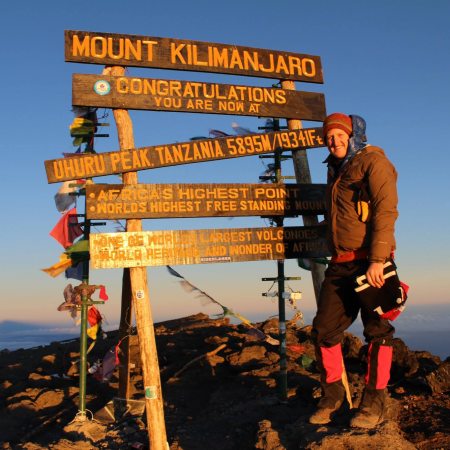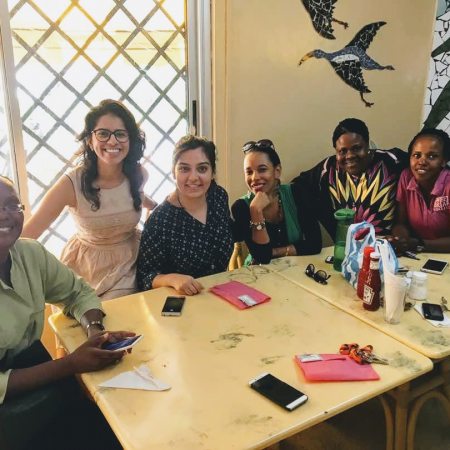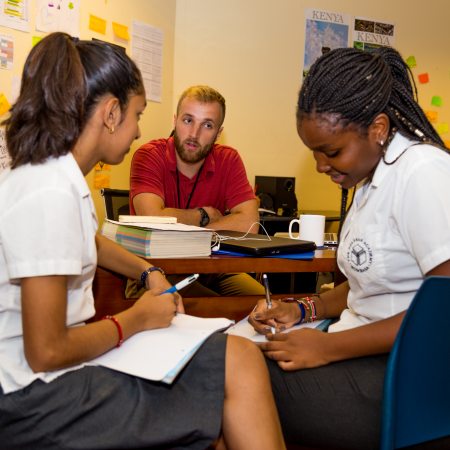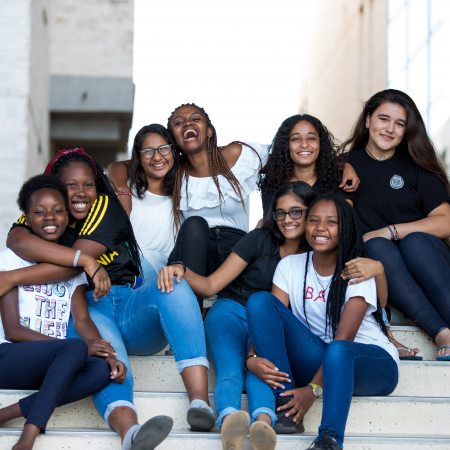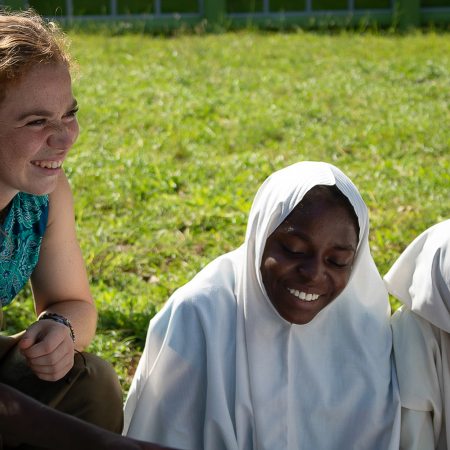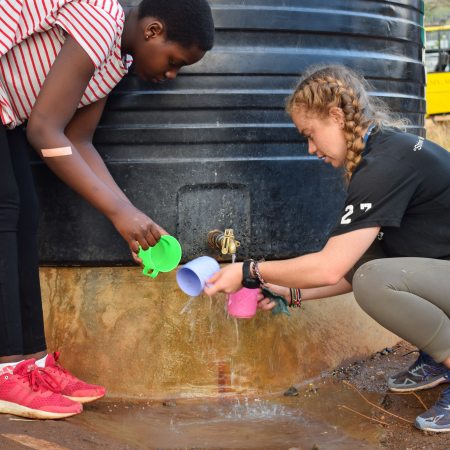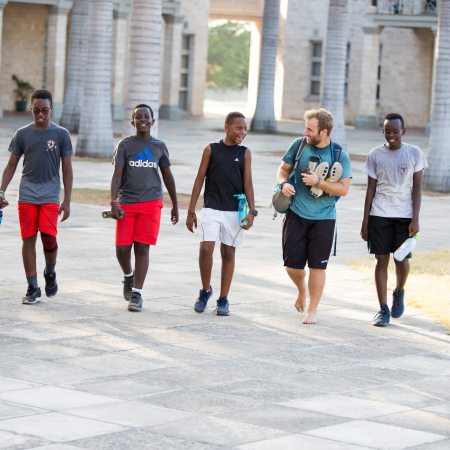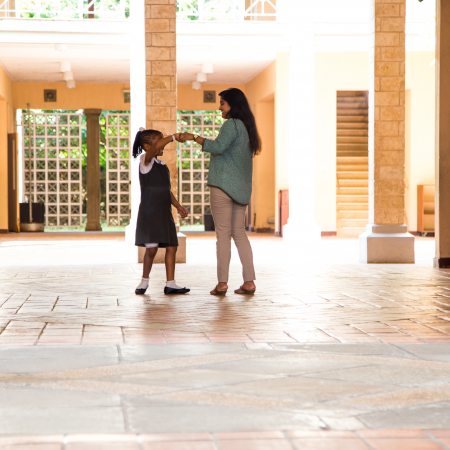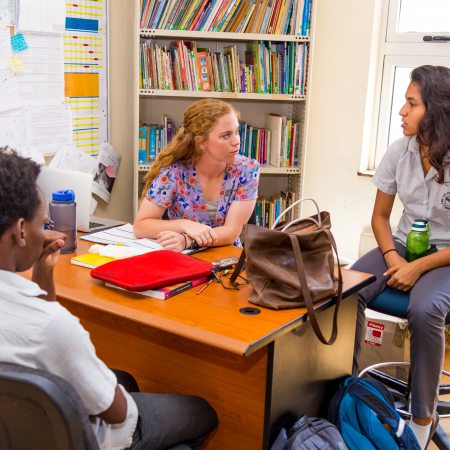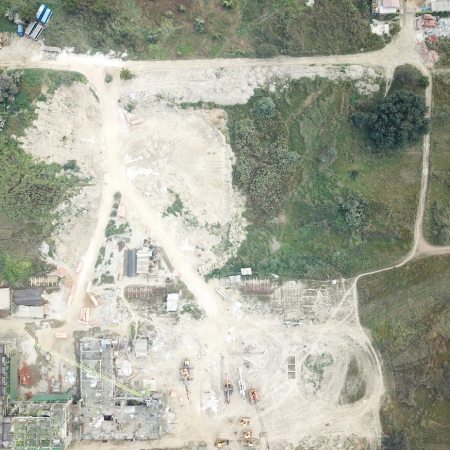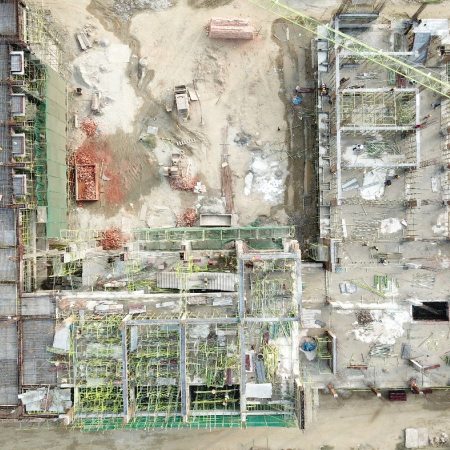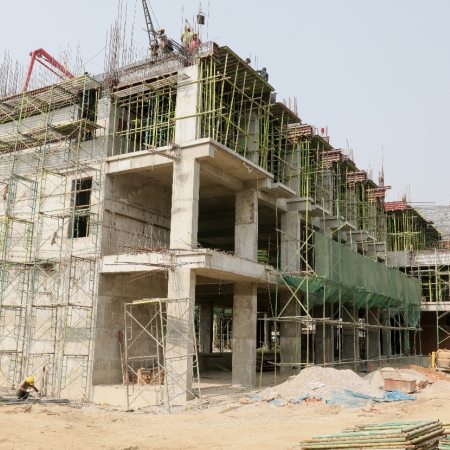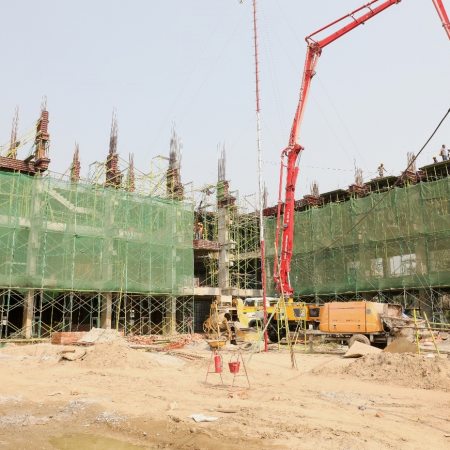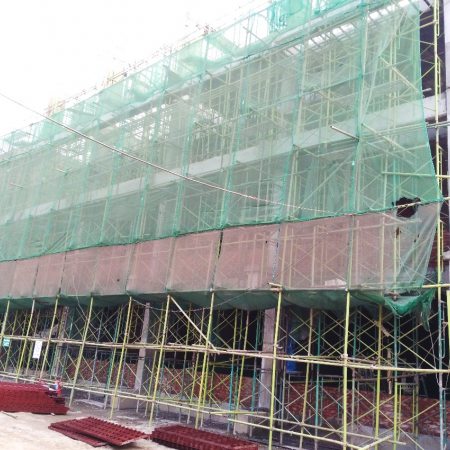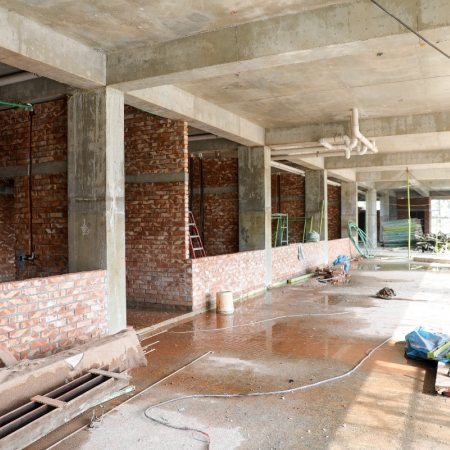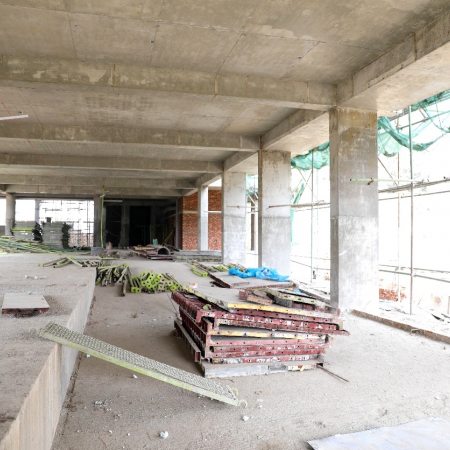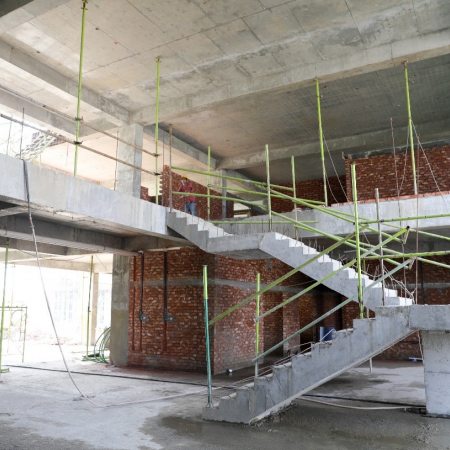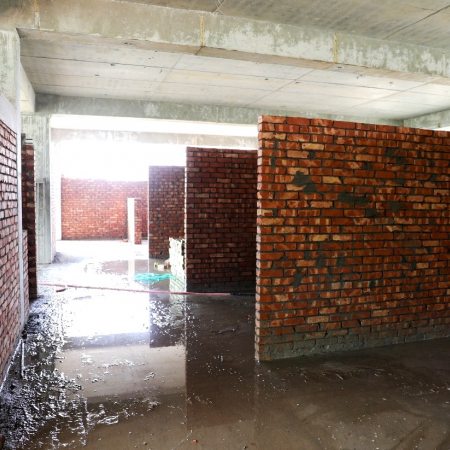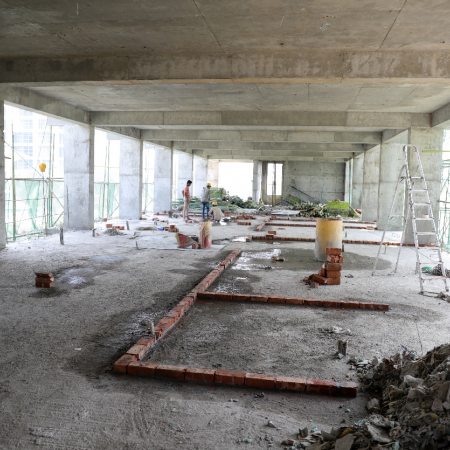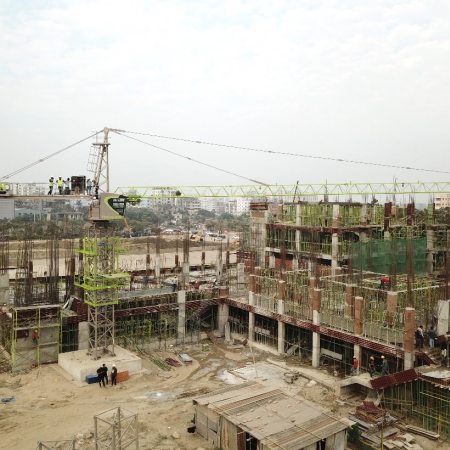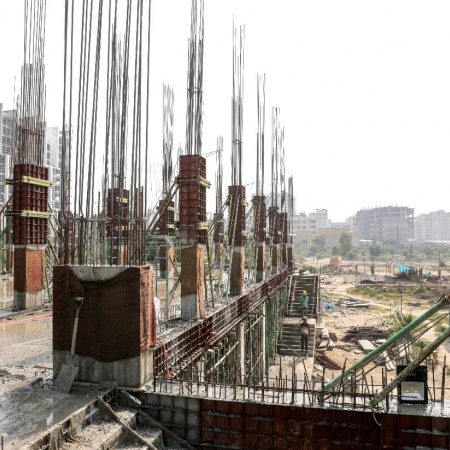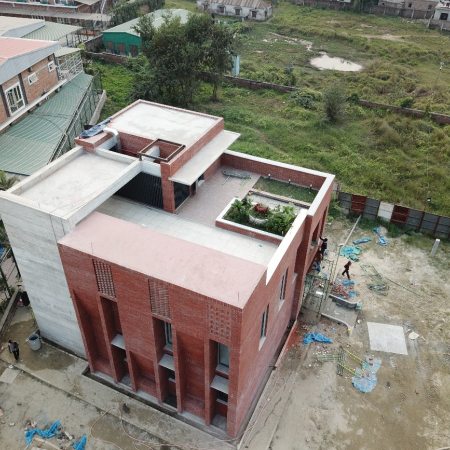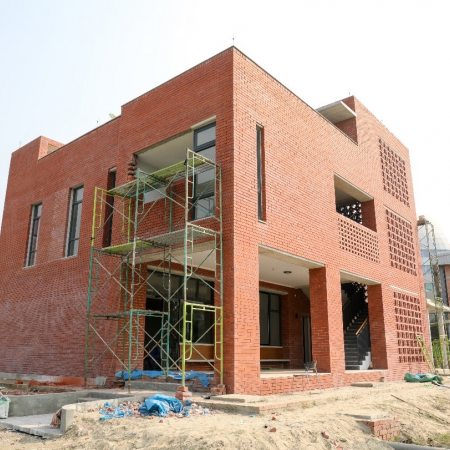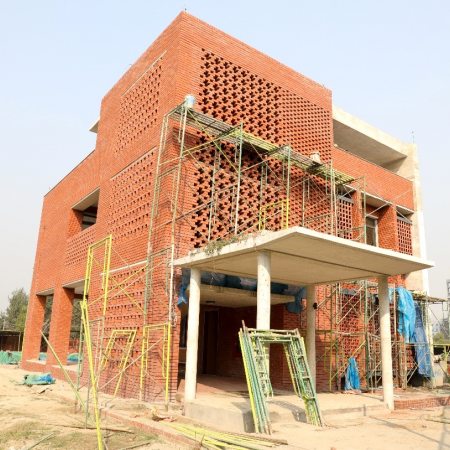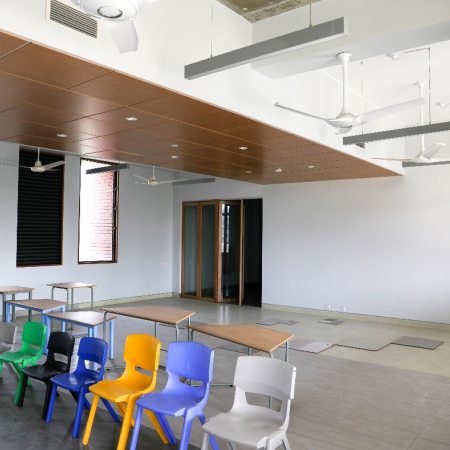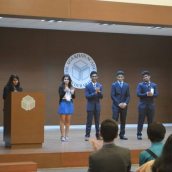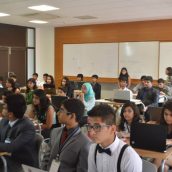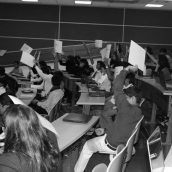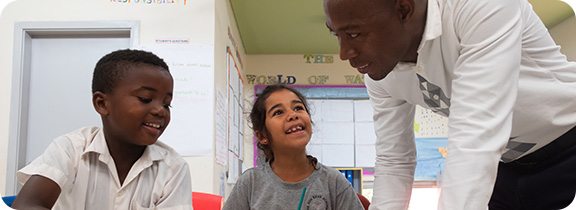
Admission Requirements
Choosing a school is an important decision in a child's and parent's life. We are here to help and answer any questions you might have.
We currently welcome enquiries of students for our Nursery, Junior and Senior School.
Our programmes are based on the principles and practices of the International Baccalaureate. The admission requirements for the Academy's programmes, including language requirements, are outlined below.
For the Aga Khan Academy Maputo, the admissions process can be followed in either English or Portuguese.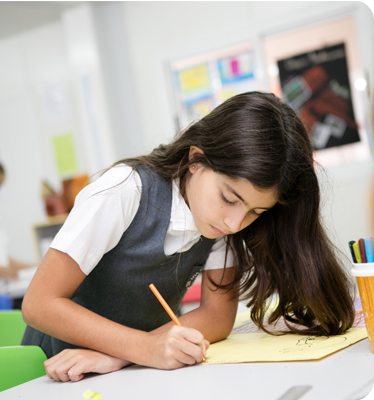 Admission is competitive and based on student merit, regardless of a family’s ability to pay. The Academy endeavours to meet the demonstrated financial need of each admitted student.
Admission is competitive and based on student merit, regardless of a family’s ability to pay. The Academy endeavours to meet the demonstrated financial need of each admitted student.
Nursery School
Kindergarten 1, 2 and 3: Early Years Programme
Students entering Kindergarten 1 must be 3 years of age by the 31st of August of the year of entry.
All prospective students must demonstrate the potential for high achievement. Each applicant will participate in a variety of assessment exercises.
Students may enter the nursery section without a strong prior knowledge of one of the languages of instruction, English or Portuguese.
Junior School
Grades 1–5: Primary Years Programme (PYP)
Students entering Grade 1 will ideally have completed at least three years of nursery school and must be 6 years of age by the 31st of August of the year of entry.
All prospective students must demonstrate a potential for high academic achievement and competency in literacy and numeracy. Each applicant will participate in a variety of assessment exercises.
Students may enter the first three years of the PYP without a strong prior knowledge of one of the languages of instruction, English or Portuguese. However, in the last three years of the PYP, students must have a basic level of proficiency in both languages before they may be admitted.
Senior School
Grades 6–10: Middle Years Programme (MYP)
All students applying for a place in the Senior School must have attained high scholastic achievement in their former educational institutions. They must also demonstrate a keen interest and participation in community service projects outside the classroom and/or extracurricular activities such as sporting activities, clubs, arts and music.
All prospective students must demonstrate a potential for high academic achievement and competency in literacy and numeracy at the school in addition to providing past student grade reports and certificates of achievement.
Grades 11–12: Diploma Programme (DP)
Applicants for the Diploma Programme must have demonstrated outstanding academic achievement as well as a record of active involvement in extracurricular and community service activities.
New students will not be accepted in the year of the Diploma exam
Applying to the Academy
For further information about admissions, please contact admissions.maputo@agakhanacademies.org.
Maryam: Becoming a better teacher
The Teacher Preparation Programme (TPP) is one of the Aga Khan Academies’ landmark teacher development initiatives. In this interview with Kamini Menon at the Aga Khan Academy Hyderabad, TPP participant Maryam talks about the TPP’s unique aspects and her experience with the programme.
Please tell us a little bit about your background.
I’m a part of the Teacher Preparation Programme in Hyderabad. This is my fifth year in teaching, and previously I worked for a Teach for India school in Delhi teaching 48 amazing girls. When my fellowship with Teach for India was over, I applied to the Academy, and here I am.
What made you join the Academy and inspired you to come here?
My previous experience as a Teach for India Fellow made me feel like I wanted to something more than just being a teacher. So I was looking for an option post-fellowship that shared a similar mindset or similar values. When I read about the Academies, the vision really interested me as well as the whole inclusive policy: giving a chance to anyone coming from any background and making sure that we provide them this idea of excellence in education. That was something that really inspired me, and so I joined the Academy.
Talk about the Teacher Preparation Programme (TPP) and where you are in that journey.
The Teacher Preparation Programme is the initiative of the Academies to make sure that we have home-grown teachers who become IB educators. This is a great initiative. This is my ninth month into the programme, and I teach in a classroom, I research, and do a lot of things at the same time. I am getting mentored by experts and improving my pedagogy every day.
Can you explain the structure of TPP? How it is organised and what does it involve?
The programme is an intense 18-month long process, and you do things in phases. In Phase One, we were in a classroom, paired with a mentor, teaching 20% of the time. Now, we are in Phase Two, and I have to teach 50% of my time in a classroom. But it’s not just the teaching. We also have to write an action research paper, which is crucial to the whole programme. Another thing which is important is the Problem-Based Learning Sessions, which are a great way to reflect on who you are as a person, not just as a teacher. In these sessions, we meet three times in a week, and we bring together all our research findings and what we have collected, and we progress to the next learning target. We work on this in groups, and then we get to reflect and apply that in a classroom at the same time.
Can you share two aspects of the programme that you find particularly unique or helpful?
For me, the most interesting part was problem-based learning. It takes a lot of patience to think in a broader way about a problem. The problem sets are given to us – then you create your learning targets, and the whole group researches with different objectives. That makes you really responsible, that improves your research skills. At the same time, it teaches you how to collaborate with members of the group. Another part that I find really interesting and at the same time challenging is my action research piece. It’s not just research; the action part is the most challenging part because you have to reflect on your own practice. For example, I am doing something on inquiry right now, but it’s not just inquiry – it’s “why inquiry in an IB classroom?” or “why even think of those big theories?” So, this has made me more reflective, it has made me more thorough with my work. At the same time, if and when I fail, it’s alright to seek advice and it’s alright to go back to my mentor to ask why this did not work in a classroom. Both problem-based research and the action research, I find that these are pushing me to become a better teacher.
How would you evaluate the model of mentorship that’s in place within the TPP?
Sandra is our mentor, and she is a really experienced Ontario teacher. She has streamlined the programme, she gave it more structure and depth. When you work with Sandra, you are not intimidated by her. You are working with an expert who knows so much, but at the same time she gives you a chance to really apply yourself. She is a mentor for me when I am doing anything in the classroom – she is always providing me with constant feedback on my pedagogy and on my action research paper. Even in the intense Problem-Based Learning Sessions, where it gets a little crazy at times, Sandra is always there to nudge you in the right direction so you come to a conclusion.
How do you and your colleagues in the TPP work together and collaborate?
We are a very diverse group. Sitting with all of them has made me a better teacher in so many ways. It is not easy to admit sometimes that you don’t know things, but I get to learn from these people because their experience, our discussions, and the help we give each other is really great. We also collaborate outside the classroom – for example, if I have a doubt or find something challenging, I go to one of these colleagues and ask for their help. They are always there for me. We really push each other to reflect, to ask the right questions, which makes you think.
Can you talk more about the process of reflection that you have in your TPP group?
For us, reflection is about making yourself vulnerable in front of the whole group. It is not easy – it is not at all easy. We don’t reflect on a superficial level; we have to really apply ourselves in the entire process. When create our reflections, we have to share them with the whole group – and the group knows and understands who you are and gives you feedback. They push you to think along certain lines, and our mentors force us to think about the way we think – it becomes more about metacognition. The whole idea of learning from someone is that you have to be vulnerable and sometimes even fail, and then admit that you failed. When you draft that experience into a reflection, it makes you a better teacher. And definitely a better person.
How do you think the TPP has made you a better person in actual fact?
The way the TPP is designed, you become a reflective practitioner – that’s the goal! You teach in a classroom and you know that it’s not just a physical space, it’s much more than that. You cannot teach in isolation – you have to collaborate with other people, you have to go and ask for help. At the culmination, you really will become a better teacher. It’s a rigorous process, it’s an intense process, it’s a very reflective process. But the goal is that, ultimately, you will be the kind of teacher you want to be as well as an effective teacher.
Can you give us an example of how you’ve applied something you’ve learnt through the TPP in a classroom setting?
Right now, I am doing an action research, and a huge chunk of this is based on inquiry-based learning in a classroom. I’m teaching grade 6, and the unit I was dealing with was “did they live like us?” It is a lot about civilisations and the way people lived and interacted with their environment. All the research that I did during the Problem-Based Learning Sessions and my action research, I applied it in this classroom setting. I created the lesson plan and then got the feedback from my mentors. Then it gave me a chance to reflect on my practice: sometimes I tend to go a little overboard, and I got to see if my plan would work out. This is how you become a better teacher.
Is there anything else that you’d like to add about the TPP?
I’ll say, for the whole process, you have to be very open. You have to be open-minded to get into this process. It’s not easy just to acknowledge that you’re going though 18 months of training – you might feel intimated, or that your prior experience doesn’t matter. But that’s not the point. The point is to become a better teacher. If that is your goal, then this programme will work for you. The way this programme is designed is rigorous and beautiful. The most important point depends on you: what do you want to take away from this. And there is a lot, if you are really open to exploring.
Academy Fellows
Hear what some of our former Academy Fellows have to say about their experience and see them in action
Aga Khan Academy Dhaka construction - December 2018
See our latest photo gallery and aerial drone footage showing progress on the construction of the Aga Khan Academy Dhaka – December 2018
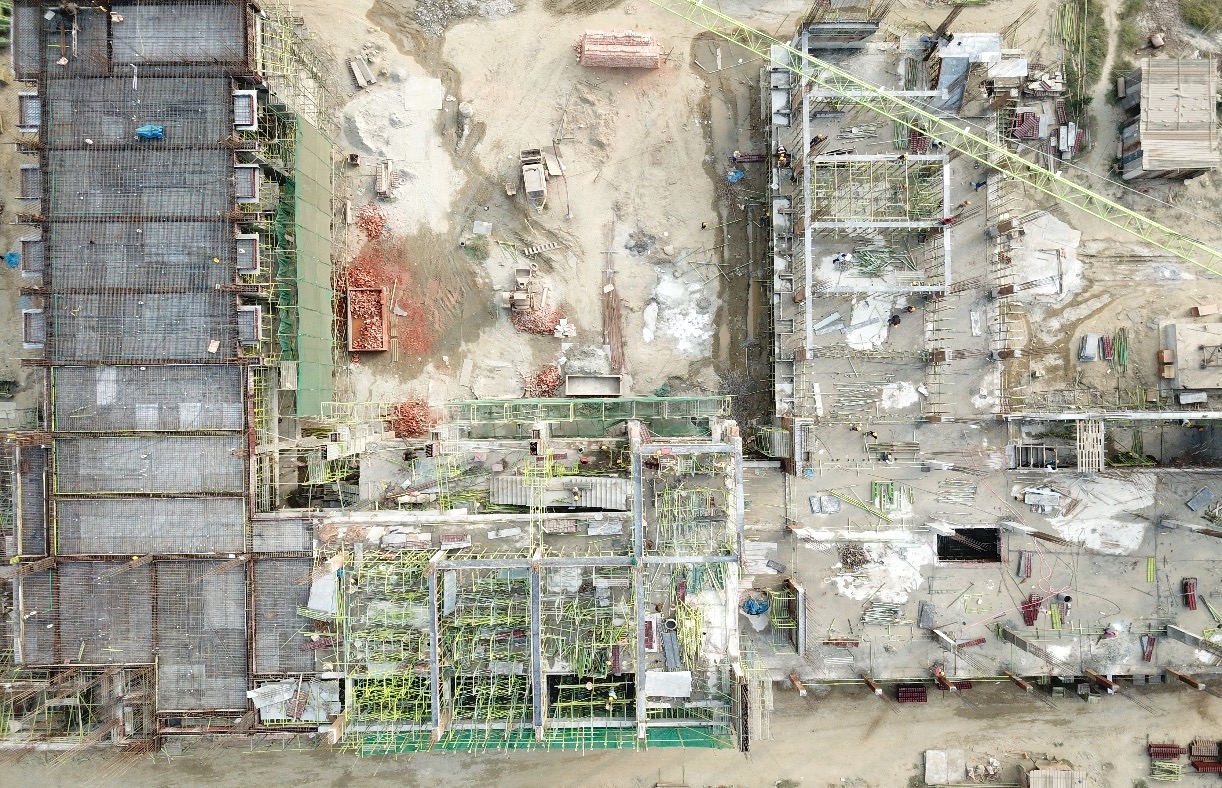
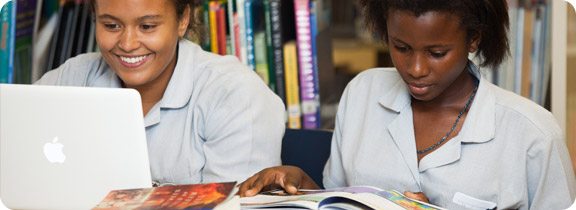
University Counselling Handbook
The Aga Khan Schools University Counselling Handbook has been prepared in order to orient you to the complex and exciting process of university application and selection. The handbook provides definite guidelines and schedules that will help you comprehend the many issues and challenges you will face in your last years of secondary school. It is designed to provide beginning steps and an outline of the application process and curriculum in various countries.
The handbook serves as a road map that will guide you as you embark on the transition from the Academy to university. It will be helpful only to the extent that you take advantage of the information it contains. The book does not replace the help of the University Counselling Office. However, it does provide answers to frequently asked questions, can help you organise your thoughts about university and, in general, can eliminate much confusion if you take the time to read it and incorporate its recommendations into your university planning.
Click here to download a copy of the handbook.
Contact the Aga Khan Academy Dhaka
Where To Find Us
The Aga Khan Academy Dhaka
Ka-65/1, Kuratoli
Dhaka-1229,
Bangladesh
(+880) 9638 111222 / 1709 997515 (general enquiries)
For admissions:
Phone: +880 1709 997510
Email: admissions.dhaka@agakhanacademies.org
Essential contact information for the Academy is available here.
AKAHMUN 2014 – The Future is Now
It all began on 22 August, 2014, when the Secretariat for the Aga Khan Academy, Hyderabad Model United Nations 2014 was finally announced. There was excitement in the air, as well as anxiety. We weren’t sure how we would raise the bar set last year. I was unsure of how the team would work together, how passionate they were and whether offsite management would work. I had organized the Model UN last year too, but this time, it was different. I wasn’t on campus and I didn’t know the new lot of students I was dealing with.
We began our journey with our first ever Model UN meeting. I expected the meeting to start late, for punctuality was rare to see. However, I got my first surprise, when every single member turned up not only on time, but half an hour early! That day I knew that no one would follow the timeline. Not because they’d miss the deadlines, but because their absolute dedication to AKAHMUN drove them to accomplish much more than what was required of them.
We planned out an extensive timeline of every aspect of the conference, a string of meetings and the nature of committees. Although everything looked perfect, I knew from experience that I must expect speed breakers, for if there are no problems, I know that I am surely doing something wrong.The first hurdle we encountered was in dealing with the day scholars. As part of the pre-Model UN preparation, we decided to organize trainings for the delegates. However, because this time around we had day scholars taking part too, we needed to ensure that we included them in every aspect of the conference. Arranging bus timings, coordinating with parents and taking permissions from teachers was a massive task. There were times when we wouldn’t be able to include the day scholars, when the timings wouldn’t match or when the day scholars had other programmes on schedule. However, we tried to reach out to as many as possible because it was a start, indeed. If it weren’t for my anchor, the Secretariat back on campus, it would have been impossible to organize such trainings.
The second hurdle we encountered was when we needed to finalise the committees. All the members of the Executive Board were excited about the idea of a Joint Crisis Committee (the Allied and Axis Cabinet), where the workings of one committee affect the workings of another. We had just one question in mind: would the first-time delegates be able to pull it off? The decision to go ahead with this committee was a risk, for crisis committees require a certain level of debate and experience. However, I also knew that with the Directors I had, I could trust that they would leave no stone unturned.
Logistics are by default the biggest area of concern in any conference, for it is by far the hardest job to pull off. The job entailed printing folders, placards, arranging the venue, the speakers, lights, cold drinks and much more. Last year, we didn’t have as many delegates to cater to, but this time around the number was massive. There was surely an inverse relationship between the number of days left for the conference and the number of challenges we faced. There were times when we were disheartened at a permission not going through or a delay in procurement of materials. Yet, it was the DP1 lot of the logistics team that stood strong. They travelled off campus, to far away locations, to get materials, send documents for printing and purchase eatables. I was truly surprised at the amount of effort they put in both during and after the conference. They worked during Diwali breaks and on weekends, like professionals, and never complained at having to do the most trivial tasks.Fast forward three months. It is 14 November 2014. After hours of tireless work, pushing ourselves to meet deadlines, and sleepless nights, it was D-Day. The air was filled with excitement and nervousness, as first-timers walked into committees, unaware of what to expect. And it wasn’t just the delegates, the Directors too were nervous, for most of them were taking the other side of the dais for the first time. Seeing the delegates buzzing through the committee rooms, we knew that the roller coaster ride had just begun. All we heard over the next three days were: Do we have projectors in all committees? Is the AC working? Are there enough chocolates in each committee? Where are the pens? Whether it be lunch, breakfast or dinner, we all forgot what it was to have a proper meal because our main focus was to get the delegates in committee.
All the efforts paid off when I received two unusual requests, over the three days of the conference. A member of the IT team, who had enrolled his name on the team to avoid participating in debate, came up to me and asked if he could participate in a committee. Initially, I was upset at this last minute request and so I asked him why he had made such a sudden request. What he replied then stayed with me throughout the conference. He told me that on seeing the enthusiasm amongst the delegates, he wanted to experience what it was like to be one. And so without any prior research, he sat through committee sessions and eventually won an award. This incident made me realize the potential at the Academy. It is only a matter of pushing them to apply themselves.
Another time, a 7th grader, who had entered the conference as a logistic member, came up to me and expressed his grief. On further probing, he told me that he really wanted to be a delegate, but couldn’t because he was a 7th grader. He had been so mesmerized by the whole event that he wished to take part. I smiled, with a sense of pride, at the impact of the conference. Over the next three days, the 7th grader debated issues in ECOSOC, argued with his seniors, and remained unintimidated by their age or knowledge.AKAHMUN 2014 had the power to bring about change. The JCC, which we were most skeptical about, brought out the best in delegates. The morning crisis, which initially made the students cranky, became the highlight of the three days. Students who initially didn’t openly accept the idea of a Model UN, jumped to take part. More importantly, though, I learnt, in the months leading up to the conference, the value of a great team. This team had dedication, passion and the will power, to make the impossible, possible. They were patient in low times, calm when faced with criticism and passionate about their goal. They worked day and night, at times when IB work was at its peak and applications lingering on their heads. They were truly the support system of this conference.
When I hear today how after the MUN, 7th grade students returned to their rooms, formed their own committees, elected their own Secretary General, came up with their own crisis and still use parliamentary language in daily conversation, I know that the Model UN tradition started in 2013, will continue for years to come. When I hear students asking about the next conference they can attend, I know that a spark has been ignited. When I hear that people are vying for the posts on the Secretariat next year, I know a culture has been sowed.
As we pass the baton on, we have realized the power of Model UN conference.
By Alisha Sonawalla
The Academy Crèche, applications welcome - 4 places left!
New crèche programme for children 18 months to 5 years is filling fast. For more details, please contact Academy Admissions Office on 040-66291300.
Academy Crèche 2016
New crèche programme for children aged 18 months to 5 years is filling fast. Holistic learning environment and Montessori trained teacher. For more details, please contact Academy Admissions Office on 040-66291300.
Congratulations to our grade 12 cohort!
143 university acceptances from China, UAE, Singapore, UK, Canada, USA & India; 35 scholarship offers worth over $1.5 million. What a testament to our IB Diploma Programme!
